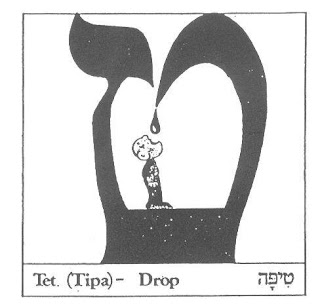
We have finished the first week of VTS August Hebrew. This year's class is doing very well indeed. Going through my Hebrew teaching files, I found the following Washington Post piece from three or four years ago by a student (Katherine Brown) who took summer Hebrew across the Potomac at Wesley Seminary. Her notes on her experience are worth reading:
The book arrives two days after I order it online. The UPS man drops it off, bangs twice on the door and is already halfway back down the walk when I retrieve the package. I open the box. The book slides out into my hand. It is a small, heavy volume with a red-brown cover: Biblia Hebraica Stuttgartensia. I riffle through pages that still cling to each other. The print is small and squared with tiny flourishes and dots. It looks random, not like letters. It takes faith to believe that these shapes can be read.
The first morning of class, we chant the alphabet through: "alef, bet, gimmel, dalet." We are all seminarians. We are also social workers, teachers, headhunters, lawyers, associate pastors. We are Baptist, Episcopalian, Methodist, Pentecostal, Presbyterian, Reformed Church of America and United Church of Christ. We are single, married, divorced and widowed. Megan is pregnant; Ann's husband is in Iraq. We are 11 women and three men gathered for six summer weeks at Wesley Theological Seminary to learn Biblical Hebrew.
I spend the first night murmuring the letters, copying them until my arm aches. The next day we meet the vowels, the tiny dots and dashes generally placed under the letters. We sound out words. We dive into translating texts. I struggle with the shapes and sounds washing over me, unable to imagine them ever resolving into meaning. "Trust me," the professor insists briskly, "You'll get it. In two weeks you'll be reading this page." I am overwhelmed, as in a wave, swirled head over heels until I'm not sure which way is up, dumped sandy and spitting, eyes streaming, on the shore. And then the next wave is along. No sure footing, no knowing how to swim under and through in this wide sea.
"Why are you studying Hebrew?" my husband asks. Even in this first week I can tell him already we have glimpsed the wonderful and terrifying breadth of the language. The noun that means "words" also means "events" or "actions" -- speaking twined with doing. The verb that means "to be" also means "to become" or "to happen."
We learn to parse verbs. We learn to peel away the extra letters, to add back the missing, to consider again the whole.
I learn to read with my tongue, as well as my eyes. Sometimes this doing -- reading aloud -- leads me to understand what I think I do not know.
I start to recognize some of the words. The four-letter word that English Bibles translate as "the LORD" is one of the easiest to see. Faced with a new passage I look first for this word; this leaves that many fewer words to translate. Scholars suggest that this Tetragrammaton is derived from the verb root "to be, to become, to happen." The very name of God, then, encompasses not just static perfection complete and achieved but the causing yet to be, creation yet becoming.
Week after week we take quizzes. Each time my initial response is a flight of panic -- the wave curving over me again -- how can I tell the meaning of so many Hebrew letters? (No longer do I doubt that they hold meaning, only my own ability to access it.) I limit my focus. Word by word the text emerges from the murk.
We learn grammatical rule after rule, seemingly compounded with as many exceptions. (In intermediate Hebrew, we joke, the professor will reveal that there really are no rules.) The patterning is elusive but apparent, as much art as science. Slowly we start to build a sense of what is present and must be peeled away; what is missing and must be added. We are not memorizing the language but we are beginning to internalize it. Not yet swimming, but entered into the rocking water.
The class picks up speed. We are getting through entire chapters -- although still, the occasional selection of wrong verb root results in a Mad Libs-type translation. We are giddy, enthusiastic, frustrated, amazed. One by one we dream Hebrew: dancing letters, difficult passages. We design a T-shirt with the legend in Hebrew.
The final exam is three hours of translating a passage we've not seen before. When we finish we gather on the hill for a picnic -- a half-planned potluck with boiled eggs and falafel, pita and hummus, just-picked tomatoes.We stand in a circle, holding hands, hearing the blessing in Hebrew. Baruch atah Adonai, Eloheinu melech ha-olam. Blessed are You, Lord our God, King of the universe.
I didn't learn to read Hebrew in six weeks. I learned that I shall be reading this sea for the rest of my life, even knowing I will never understand it all.


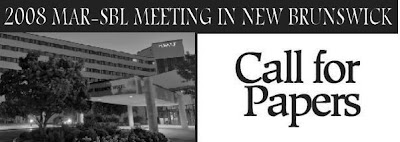


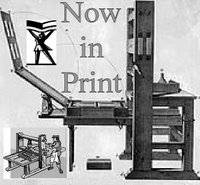


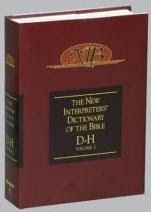
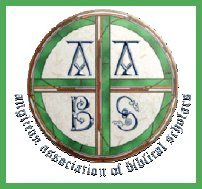




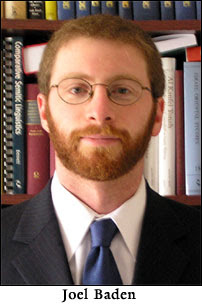



 incredibly enthusiastic about learning, Greek, and Dr Ellen's teaching of Exous, Leviticus and Duet in Hebrew – a double learning.
incredibly enthusiastic about learning, Greek, and Dr Ellen's teaching of Exous, Leviticus and Duet in Hebrew – a double learning.



